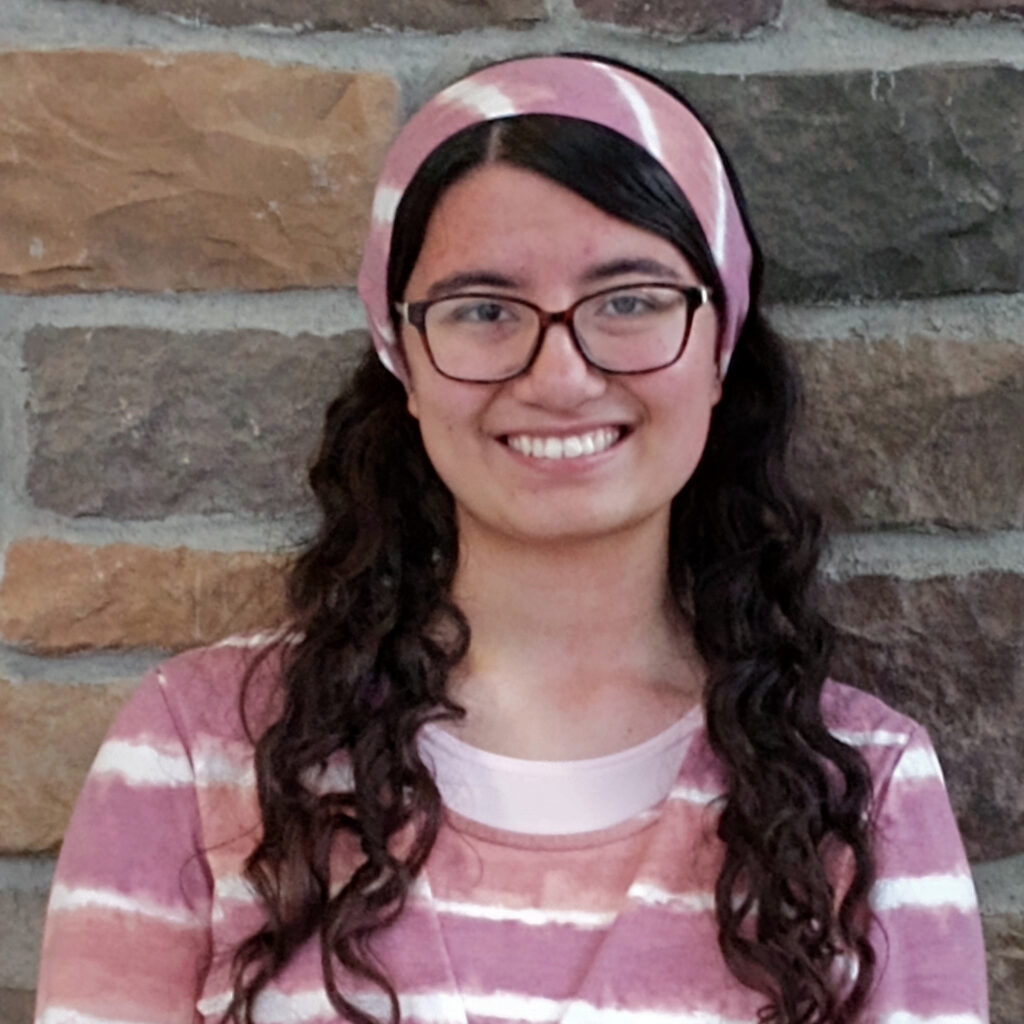By Hannah Grace M. Staton

“In the womb [Jacob] took his brother by the heel, and in his manhood he strove with God. He strove with the angel and prevailed; he wept and sought his favor. He met God at Bethel, and there God spoke with us—the LORD, the God of hosts, the LORD is his memorial name: ‘So you, by the help of your God, return, hold fast to love and justice, and wait continually for your God.’” (Hosea 12:3-6 ESV)
“Mama, why did you name me Jacob? The preacher man today said that the Jacob in the Bible lied and deceived people.” The boy coiled like a wound spring at his mother’s feet and sat back on his heels as he awaited an answer.
A moment of silence passed as his mother gave pause for thought, gently swaying back and forth in her rocking chair. She gazed down with love at energetic eagerness embodied, wishing she could forever imprint on her mind this image of her son, still so young and impressionable, starlike sparkles residing in the orbs of his crystal blue eyes and slanted rays of the setting sun bringing out highlights in his sandy brown hair. She smiled and said, “I’m glad you pay attention to the sermon and bring me your questions, son. About Jacob, yes, it’s true that he lied and deceived people. But there’s more to his story. A couple of my favorite Bible stories involve Jacob. In one story, he was fleeing from his brother, Esau. One night as he slept, he had a dream in which he saw angels going up and down a ladder that stretched from heaven to earth and he heard God speak to him, promising him children, land, and protection. When Jacob woke up, he made an altar there, because he realized that the place was sacred. Many years later, when Jacob was returning home to his father, he met a stranger and wrestled with him all night. The stranger was actually God in human form. Once Jacob realized that, he refused to let the man go without receiving a blessing.
“In those stories Jacob portrays traits I want you to have. Even though Jacob made many mistakes (as we all do from time to time), he could recognize God’s presence even in ordinary places, and he had a tenacious faith that wouldn’t let go of God even in the midst of pain. Simply put, Jacob saw and strove with God, and he was changed. After that night of wrestling, God left him with a lifelong limp, but He also blessed Jacob and gave him a new name: Israel, which means “He strives with God.” What looked like a sign of weakness was actually a symbol of strength. It was a reminder that Jacob had wrestled with God and had prevailed. Jacob became a blessing himself. All this and more is what your father and I had in mind for you when we named you Jacob.” She stopped and leaned forward, peering into Jacob’s wide eyes. “I know that’s a lot to absorb, and it’s probably more than you can understand right now. But someday you will understand.”
Jacob awoke surrounded by night. It had been a dream. The incident did not stir any remembrance in his conscious mind, but given his youthful inquisitiveness and his mother’s penchant for making the most of teaching opportunities, it seemed likely that such an event could have happened. He wasn’t completely certain either way. Somehow that didn’t seem to matter so much.
He sighed. It had been nearly thirty years since his mother was gone. He had been told that real men don’t cry, that they just pack up their feelings and move on, but the river of emotion that dwelt deep within couldn’t help but rise to the surface whenever he remembered all that had happened when he was only ten. When he closed his eyes, memories flooded back in a torrent: the squeal of tires and the crash of colliding metal on the highway, breaking the stillness of the night; the bright lights of the hospital; his father slowly shaking his head, saying, “No, son, Mama didn’t make it,”; his younger sisters’ tear-stained faces and plaintive cries, “Oh, why did you have to go?”; the click of the casket lid. It felt as though something pure and holy and good had died within him the day his mother was buried, never to return.
Careworn and battle-weary from all these troubled thoughts, Jacob finally fell asleep. The next morning he drove to work through rain pouring so hard he could barely see. The weather suited his brooding mood. A sense of heaviness hung on him all day, and he couldn’t shake it off no matter how hard he tried. Though the struggle was strong, he refused to give up. But by the end of the day his strength was spent. He came home tired. After tossing his keys on the kitchen counter and eating leftovers for supper, he sat on the living room sofa and let his thoughts wander. The house was quiet. The loving voice of a wife, the delighted squeals of children, and the familiar laughter of close friends were not heard, nor had they ever been within these walls. He was alone. He thought about turning on the television for the sake of some noise, but for some reason he decided to pick up his Bible instead. He opened it and began to randomly flip pages, not sure what he was looking for or if he would find it. Suddenly he stopped. The words on the page struck him hard: “Surely the LORD is in this place, and I did not know it!” He looked up and thought, Really? God is in this place with me right here and now? I certainly don’t feel Him at all. Glancing back down, he saw that the verse he had just read contained the words of Jacob after his dream of angels and the Lord. That brought to mind his own dream from the night before and caught his attention. Hmmm. . . something’s going on here. It seems God is telling me something. But what?
A thought rose up that took him by surprise: I’m not going to give up until I find out.
For the next several weeks, Jacob woke up each morning with this prayer (or some variation of it) in his first thoughts: Show me what it is You want me to learn, Lord. Help me to see. And he kept his eyes open for answers. He wasn’t quite sure what to expect or when his answer would come, so he waited with eagerness and maintained a seeking spirit at all times. As the weeks wore on, nothing dramatic happened. Day turned to night and back to day with a rhythm of motion that ebbed and flowed like the tides of the sea until Jacob was nearly lulled to sleep by the ordinariness of it all. But he was on a relentless pursuit of more now that his attention was aroused, so he resolved to pay even closer attention to his everyday surroundings. Gradually he began to look at things in a different light. It was as though he had developed another layer of vision. He began to see things he hadn’t taken notice of before: the tired eyes of the cashier at the grocery store, the tiny rain-drenched frog resolutely clinging to an outer windowsill, the sun’s rays thawing the last traces of snow with irresistible warmth. Through all these things and more, he began to hear God speak to him, telling him of the need to show compassion to others, of the beauty of courage under pressure, of the gentle transforming power of true love. When he fed pigeons bread crumbs at the park in the afternoon, he considered God’s daily provision for his own needs. When he stared at the stars at night, he pondered the beauty of mystery and the peace that comes from accepting by faith things beyond the reach of comprehension. Slowly his soul began to awaken to the light.
One morning Jacob found himself humming a melody that sounded hauntingly familiar. He couldn’t quite remember the words, but as he kept humming, they started to return. Oh yes, it was that song his father had always liked. How did the chorus go again? “Simple heart beat in me / Until I can see a / Simple heart will set me free / To let extraordinary things / Flow through this ordinary / Heart of simplicity.”
The concept lingered with him as he drove to church on that joyously beautiful morning. The sun was shining, the robins were singing, and the earth was bursting to life with signs of spring. Jacob smiled. I think I’m starting to understand. The puzzle pieces are fitting together. The key to the answer I seek lies in front of me. God has been speaking to me all along. It takes a heart of faith to witness His message written everywhere, in even the simplest things. He truly is here all around me—I must only open my eyes to see Him.
A few days later, Jacob didn’t feel certain of much of anything. His well-ordered world had rapidly unraveled before his eyes, and as he surveyed the wreckage, his faith seemed as fragile as a taut thin cotton thread. So much had broken down that he hardly knew where to begin to rebuild. First he lost his job for no other reason than refusing to cheat on his paperwork as his new manager had told him to. There were no other comparable jobs in the area, and he had no idea what he would do next. After that, a flood deluged his basement, leaving it nearly three-fourths submerged underwater. This had not happened before in all of the eight years Jacob had lived in this house and was totally unexpected. Besides the inconvenience and expense of having to repair the damage, there was the sadness of dealing with the destruction of many mementos—pictures, letters, and so on—he had stored down there. Then he learned that a church elder had been spreading lies about him and ruining his reputation among many members of his home church, which was why he was not approved by the church board to help lead a men’s accountability group. It had been a step of faith for him to even consider joining such a group, but he had felt that God was leading him to do so in order to stretch him out of his comfort zone and help him to grow. Now the door had been slammed in his face.
Disillusioned with his career, his home, his church, and his faith, Jacob felt like he just couldn’t take any more. But there was more to come. The phone rang. It was Jacob’s father. Jacob picked up the phone. “Hello, Dad,” he said, hoping his father wouldn’t notice the ragged edge of distress in his voice. Without wasting words, his father said, “Jacob, I have something to tell you. I know this will be hard to hear. I’m still coming to terms with it myself.” Jacob grimaced. This didn’t sound good. His father continued, “I went to the doctor because of severe abdominal pains I’ve been having, and he told me that I have cancer and probably only a few months left to live. I thought you would want to know.”
Jacob mumbled a response and hung up in shattered silence. Could it get any worse? He stumbled downstairs into the still-damp basement and sat down amidst water-soaked boxes and undone plans. Surrounded by ruin and overwhelmed by the force of pain pressing in on every side, he felt ready to give up. His world had gone from clear tones of black and white to hazy shades of gray, and nothing seemed sure or steady anymore. He bowed his head and covered his face with his hands in a posture of abject surrender. I have had enough, God. I don’t understand what’s happening, and I can’t see what You’re doing. Life is totally out of control. You take over. Please show me what to do. Show me that You are even here.
He waited in silence, his breathing heavy and labored. Then a whisper came clear as a clap of thunder: Go to your father.
Jacob waited a while longer. Nothing more came. He lifted his head, got up, and headed to his bedroom, where he began to pack his things. Well, that’s clear enough. At least I don’t have to ask for time off work, he thought wryly. The next day he set off on the five-hour journey to his father’s house.
The journey proved to be a time of healing, giving him time to think and process through all that had taken place. After struggling for some time with the reality that so much of his former life lay in shambles, his thoughts turned toward his father. He and his father had been close when he was younger, but over the past few years the phone calls, letters, and visits had grown less frequent as they had each been increasingly occupied with other cares in life. Jacob regretted his part in this gradual drifting of their relationship, especially now that his father’s life was coming to a close. But there was no undoing the past. He could only redeem the present.
The road rolled on as morning turned to afternoon and the distance closed in.
Upon arriving at his father’s house, Jacob knocked on the door. “It’s me, Dad,” he called. A few seconds later, he heard a voice reply, “Come in.” He opened the door to find his father sitting at the scratched old oak table that had been the centerpiece in the kitchen for as long as Jacob could remember. His father smiled at the sight of his son. “It’s good to see you, Jacob,” he said. He paused, then continued, “I hoped you’d come. I so wanted to be with you again.”
Jacob stood still for a few minutes taking in the sight of his father, looking weary yet at rest, warm welcome hovering in the corners of his gray eyes and the afternoon sun casting bright rays on his silver hair. In that moment, a lifetime’s worth of memories flooded in of all the times his father had been there for him. Now so soon he would be there no more. All that had weighed Jacob down on the way seemed insignificant in light of the greater context of life and death. It was all too much to take. Jacob rushed across the room and fell into his father’s waiting arms. It was a moment of grace like he had never experienced. “I’m sorry for not calling and just dropping in like this,” he said through tears. “I’m sorry for not doing more to keep in touch. I know that was my fault for letting our relationship grow distant. I love you, I really do, but—” further words were drowned out by deep heaving sobs.
His father hugged him tighter and said, “I know. I know it all, dear son. I forgive you. You just didn’t know how to show your love for me, even though it was there all along. We can’t change the past, but it’s never too late for a new beginning so long as we’re both here. Now, how about a snack? I think there’s some food in the fridge that you would like. You must be hungry as a bear after your long trip here,” he said with a wink as he loosened his grasp and leaned back in his chair.
Jacob couldn’t help but laugh. It seemed like such an ordinary way to end such a profound exchange. Yet what could he say but yes? And wasn’t that the wonder of simplicity? Besides, he was hungry.
Our lives are building slowly toward a great climax of redemption where we will finally see God face to face. And there are smaller victories along the way. But slow plodding between those victories is the pattern, not the exception. We live day to day, not miracle to miracle. And there’s something wonderful about these ordinary days and years spent between the high points. They are where the story is lived out and character development takes place. Because we don’t see him face to face, we learn to walk by faith, and not by sight. We learn to see and cherish God’s movement in the ordinary moments too, and to learn that perhaps they aren’t so “ordinary” after all.
-Matt Rhodes
About the Author

Hannah Grace M. Staton seeks to bring her faith to the page in fresh and creative ways, sharing some of the things the Lord has been teaching her in a form others can benefit from. An unstereotypical teenager, Hannah Grace is content with being who God has uniquely created her to be. When she’s not wielding words of her own in writing, she enjoys finding inspiration by taking in others’ words through books and songs.
